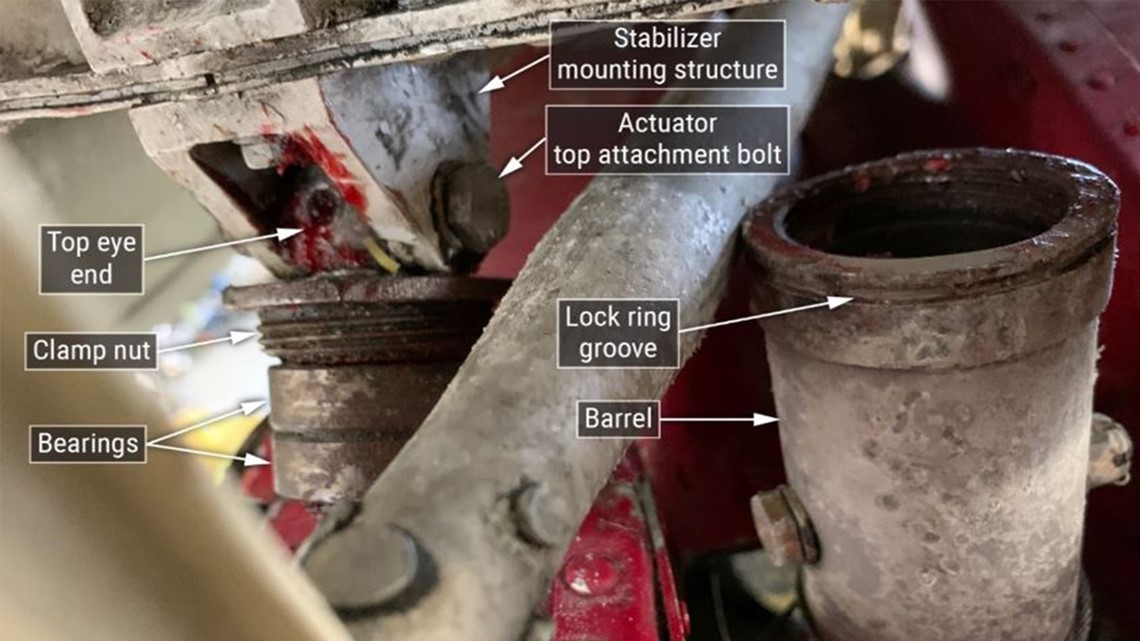The National Transportation Safety Board (NTSB) issued an "urgent aviation safety recommendation" Thursday upon its findings in the ongoing investigation into the floatplane crash that killed 10 people off Whidbey Island in September.
The NTSB said earlier this week that a lock that helps an aircraft control its pitch was not located when officials examined wreckage from the crashed floatplane, which could have led to the pilot's loss of control in the air.
The NTSB is now recommending the Federal Aviation Administration (FAA) and Transport Canada require all operators of De Havilland Canada DHC-3 aircraft to inspect the "horizontal stabilizer actuator lock ring" and report their findings. The directive would apply to 68 planes in total across the U.S.
The FAA said Thursday that it had started contacting DHC-3 operators prior to the NTSB's recommendation, but they have not issued an airworthiness directive, which was also part of the NTSB's request.
A spokesperson for Transport Canada said they are reviewing the NTSB's recommendation, but have not yet issued any directives. The FAA said its been in "close contact" with Transport Canada, which certified the plane.
During the examination of the floatplane's wreckage, the NTSB said it found that a clamp nut that attaches the top eye and bearing assembly of the horizontal stabilizer actuator to the actuator barrel had unscrewed from the barrel.
The examination also reportedly found that the circular wire lock ring, designed to prevent the clamp nut from unscrewing, was not present. If they become separated, the actuator would not be able to control the position of the horizontal stabilizer, resulting in a reduction or loss of pitch control, according to the NTSB.


“Immediate action needs to be taken to inspect the actuator of DHC-3 airplanes, of which 40% operate in the United States, to prevent a similar tragedy from happening,” said NTSB Chair Jennifer Homendy. “NTSB is issuing this urgent recommendation as a result of a significant finding made by NTSB investigators.”
The current certificate holder for the DHC-3 airplane, Viking Air Limited, released a service letter recommending operators “visually confirm that the stabilizer actuator lock ring is present, correctly seated in the groove in the upper housing… and the lock ring tang is engaged in the clamp nut.”
The NTSB released its preliminary report in Sept. which detailed the moments leading to the floatplane crash.
On Sept. 4, the floatplane took off from Friday Harbor as a scheduled commuter flight to the Renton Municipal Airport. Witnesses reported the plane took a nosedive before crashing and disappearing below the surface of the water in Mutiny Bay.
The families of the victims announced they plan to conduct their own investigation into what went wrong, citing that the NTSB's findings are not admissible in court, according to an attorney for the families.
The number of victims found and identified has reached seven, according to Island County Emergency Management. The bodies of Jason Winters, the plane's pilot, Sandra Williams, Ross Mickel, Luke Ludwig and Rebecca Ludwig were recovered during the NTSB recovery operation earlier this month. Gabrielle Hanna's body was recovered on Sept 4.
The Clallam County Coroner's Office reported the body found in the Dungeness National Wildlife Refuge on Sept. 16 was identified as 66-year-old Patricia Hicks of Spokane Valley. The bodies of three victims are still missing.

